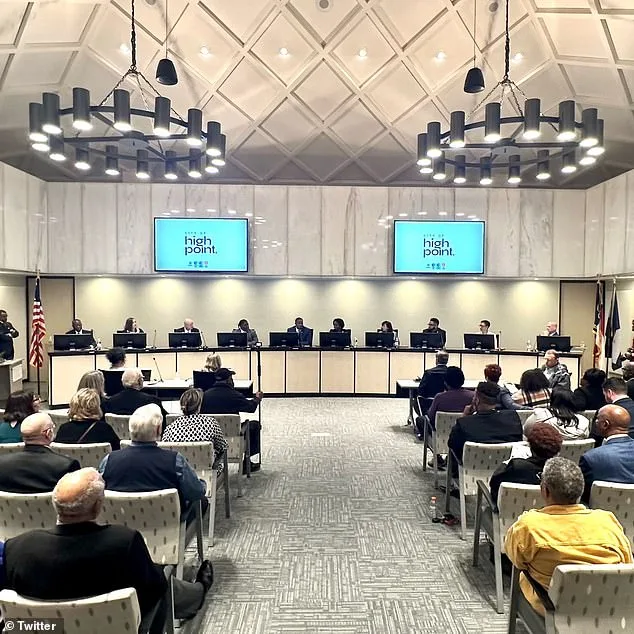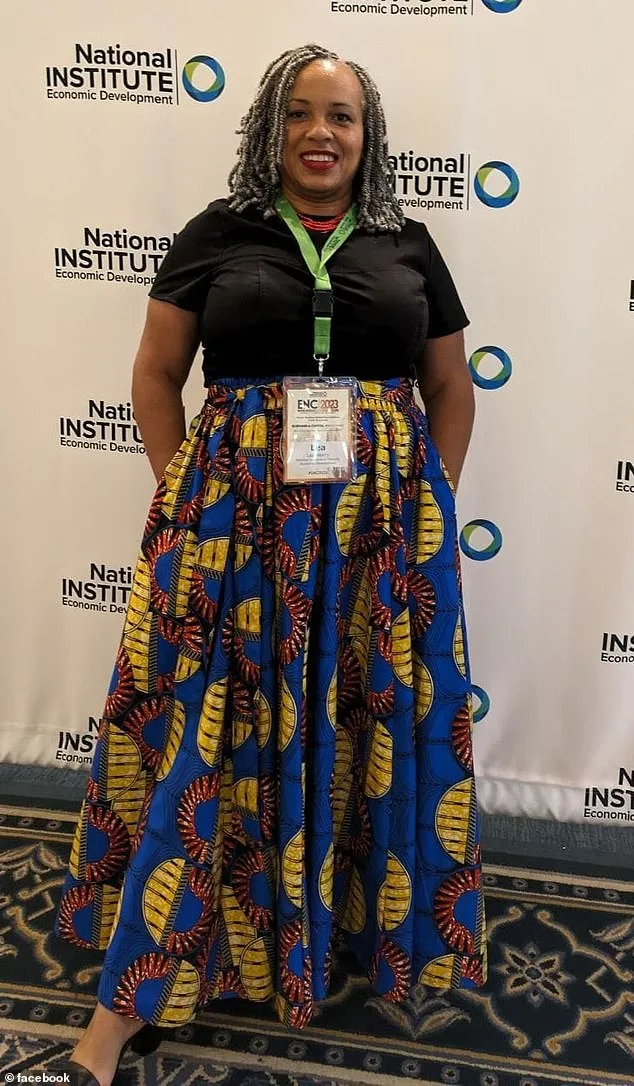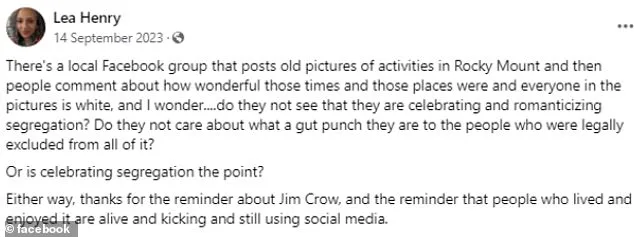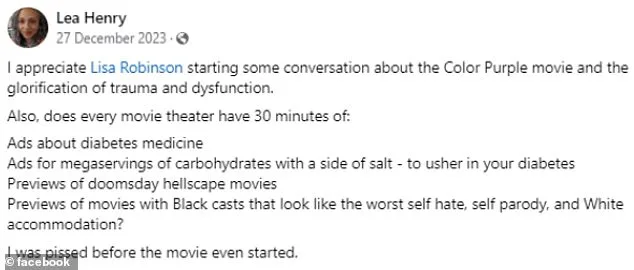A North Carolina city has approved $300,000 for a reparations consultant with a record in online posts about ‘White accommodation’ and how her neighbors ‘celebrate and romanticize segregation.’
High Point City Council on Tuesday greenlighted $292,460 for Lea Henry and her team at the National Institute of Minority Economic Development, to lead its reparations efforts.
At least two councillors have queried the large sum — but there are few signs that members are aware of the hard-line views that Henry, a Harvard University graduate, posts on social media.
On Facebook, Henry has slammed her North Carolina neighbors for ‘celebrating segregation’ and railed against ‘White accommodation’, a term critical race theory (CRT) advocates use to describe a type of black oppression.


Whether taxes should fund cash payouts and other schemes for the descendants of slaves is a hot-button issue in America’s culture wars. For critics of them, reparations consultants are a drain on much-needed resources.
Henry’s posts raise questions about whether she’s the right woman for the job.
In one, she refers to an online group for former and current residents of her own North Carolina city, Rocky Mount, to share nostalgic photos of yesteryear.
‘People comment about how wonderful those times and those places were and everyone in the pictures is white,’ she posted in September.
‘Do they not see that they are celebrating and romanticizing segregation?’
Those who commented positively on the photos were delivering a ‘gut punch’ to the blacks who were ‘legally excluded’ at the time, she said.
The comments were a ‘reminder about Jim Crow, and the reminder that people who lived and enjoyed it are alive and kicking and still using social media,’ added Henry, 52.




In another post, she complains of the previews screened at a movie theater before the main feature, the Color Purple, a musical about racism in Georgia in the early 1900s.

She described ‘movies with Black casts that look like the worst self-hate, self-parody, and White accommodation.’
‘I was p****d before the movie even started,’ she posted in December.
Henry, an expert in affordable housing and getting black people on the property ladder, has already worked for the city of 115,000 people as it produced its One High Point Commission report.
The 245-page document was released last year, and called for policy changes to address the city’s deep-rooted racism and legacy of slavery.
It aims to help African Americans by improving schools and transport in black neighborhoods and making it easier to get a mortgage.
Henry’s new, 30-month project involves advising the city on which of those proposals should get turned into action.
Councilwoman Monica Peters said Henry’s advice would help High Point by increasing ‘our tax base to help alleviate the cycle of poverty,’ according to the High Point Enterprise.

Other council members were not convinced.

Councilman Tim Andrew said Henry’s work plan was not clear, while member Britt Moore warned of overspending.
Supporters of reparations say it’s time for America to repay blacks for the injustices of the historic Transatlantic slave trade, Jim Crow segregation and inequalities that persist to this day.
From there, it gets tricky.
There is no agreed framework for what a scheme would look like. Ideas range from cash payouts to scholarships, land giveaways, business startup loans, housing grants, or statues and street names.
Critics say that payouts to selected black people will inevitably stoke divisions between winners and losers, and raise questions about why American Indians and others don’t get their own handouts.
While popular among black Americans, other groups who would foot the tax bill are less keen.


